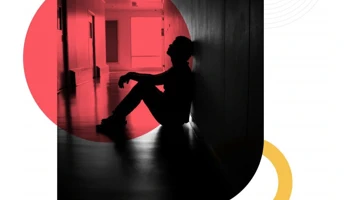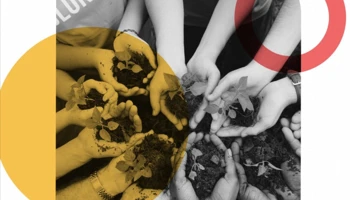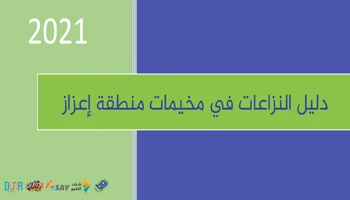Youth, Women andGrassroots Recomendation Letter to the Fourth Brussels Conference

To: The Joint Commission of the European Union, the United Nations and the Organization of the Fourth Brussels Conference
BACKGROUND
The great part that Syrian civil society played in the early stages of the Syrian revolution is no longer a secret to anyone. It started with the people's rapid responses, coming out into the Syrian streets to demonstrate against the cruel practices enacted against children, youth and women during peaceful protests. This civil activity turned into an organized movement responding to the needs of the Syrian people, especially after the large waves of displacement which occurred after the bombing and targeting of residential neighborhoods. Community initiatives played a clear and obvious role in responding to people's needs. To this day numerous volunteer teams throughout Syria have rehabilitated schools and mosques to receive displaced families. Young people have also played a major role in the political and humanitarian field, not only through the peaceful movement but also through the voluntary teams they've formed. This vital role of Syrian youth continued until late 2012, but began to decline relatively with the growth in military operations and the increase in arbitrary arrests. The role of youth saw further deterioration when some radical forces with a religious, national, or sectarian backgrounds emerged and forced young men to hold weapons through forced recruitment, exploitation of economic needs, or the threat of arrest.
Many local initiatives in Syria have moved to obtain a license in neighboring countries and work with regional and international donors. This has prompted many to become organizations that follow the procedures required from financial transparency and humanitarian principles and standards, procedures which are required to obtain donor support. In the process, however, some organizations have forgotten about the community participation principles and standards of societal inclusion. This has led to a gradual disappearance of unlicensed local initiatives in Syria which played the most important role in the early years of the revolution. Most organizations have turned to responding to necessary and urgent humanitarian needs resulting from the large amount of fighting and bombing of schools, hospitals and markets in their communities; the ever-increasing burden of responding to these needs has made the gap between these organizations and families, unlicensed local initiatives and volunteer teams even bigger day by day.
This paper seeks to shed light on the importance of involving youth groups, grassroots and volunteer teams in political and civil decision-making Platforms, and also providing all civil spaces for discussions, communication and trust building, as civil society is the true guarantor of any future solution. The sense of community grassroots to include in any solution in the political and negotiating process is absolutely necessary for society to recover trust in this process and ensure the sustainability of the resulting solution and guarantee the access to building sustainable peace
The importance of this paper comes from the fact that it establishes the principle of partnership with grassroots and civil society as an essential part in the future of Syria, this is done by exploring the opinions of young men and women in the various places that distribute them inside Syrian, neighboring countries and around the world. Nearly 411 people participated in the youth survey, the majority of whom were from Idlib Governorate, 44% in addition to Aleppo, 13%, Raqqa and Hasaka, 13%, Damascus and Rural Damascus, 12%, and Homs, 6.3%, in addition to Turkey, 6.8%, and Europe 2.4%. Whereas, 276 participated in the women’s survey. The participants and distributed in Idlib, 53% in addition to Aleppo, 13%, Raqqa, 4%, Damascus, Rural Damascus, 15.5%, and Homs, 5.4%, in addition to Turkey, 6.5%, Europe, 1.5%, and 1.5% in the coast.
By taking into consideration the latest field developments, from the recent movements of the regime and its threat to start new military operations in Idlib, ignoring UN resolutions 2254 and forgetting the humanitarian conditions that the world is going through under the Corona pandemic. Likewise, the field conditions in As-Suwayda that prompted people to act against tyranny and corruption along with the need to protect this civil movement. In addition to the recurrent assassinations of activists and the people from some armed gangs deployed in different regions. We think that the first step towards increasing the effectiveness of youth, women and civil society begins with having a political solution which protects all from military operations first, and from detention, enforced disappearance, and kidnapping second.
FINDING
When asked participants, whether in the youth or women affairs opinion polls about their level of satisfaction with the following issues, the findings were:
- 42% of the women were not satisfied with the projects and programs provided to women, 29% of them were totally satisfied and 29% were somehow satisfied. While, 52% of the youth were not satisfied with the projects and programs provided to youth, 18% were totally satisfied, and 30% were somehow satisfied.
- 65% of women were not satisfied with the progress of the political and constitutional process in Syria, with 81% of young people were not satisfied as well.
- 42% of women were not satisfied with the opportunities available to them to participate in public affairs and community work, while 30% were somewhat satisfied, and 28% were fully satisfied. For youth, 67% were not satisfied with the opportunities provided for them to participate in public affairs and community work, 21% were somehow satisfied, and 12% were totally satisfied.
- Regarding women's ties, 39% of women were not satisfied with the performance of women's networks and unions, 32% were totally satisfied, and 29% were somehow satisfied.
- 50% of women were not satisfied with the opportunities available to participate in decision-making process, 26% were totally satisfied, and 24% were somewhat satisfied. For youth, 81% were not satisfied with the opportunities available to participate in decision-making process, 12% were somehow satisfied, and 7 % were totally satisfied.
CHALLENGES
73% of the participated youth stated that the following challenges are general and trans-geographical challenges, while the rest of the respondents stated that these challenges restricted to the geographical scope of their residence. In the other hand, 63% of the participated women stated that the challenges are general and cross-geographical, while 37% stated that these challenges restricted to the geographical scope of their residence.
- Youth stated that the security challenges are the biggest , as 61% of youth selected it among the five most important challenges, the lack of educational opportunities by 59% was the second important one, the lack of job opportunities by 47% was the third, the lack of financial resources 37% was the fourth, and the instability as a result of displacement by 35% was the fifth.
- Women stated that the instability as a result of displacement is the biggest with 43% of the respondents, the incompatibility of the projects provided to women with the labor market came as the second with 36%, the lack of job opportunities was the third with 30%, the society's negative view of women was the fourth with 30%, and the lack of resources and funding opportunities was the fifth with 28%.
- When asked about the most important programs that young people need, economic empowerment was at the forefront with 69%, Guaranteeing the voluntary and safe return of the displaced to their cities was the second with 61%, education and higher education was the third with 59%, working to find a party or platform that truly represents youth was the fourth with 52%, and political empowerment was the fifth with 45%.
- For women, the most important program was economic empowerment with 72%, education and higher education was the second with 59%, creating remotely and recognized education opportunities was the third with 58%, advocacy programs for women was the fourth with 57% and vocational and professional empowerment was the fifth with 53% and protection as well with 53%.
POLITICAL PARTICIPATION
The priorities of the programs for the youth in the political field were as following; raising awareness, empowerment and political participation of youth was the first priority with 62%, increase youth representation in platforms and various bodies was the second with 52%, educating the youth about the importance of their participation in the political process was the third with 50.6%, working on establishing committees and representative bodies for you was the fourth with 48%, and developing youth skills in negotiation was the fifth with 45%.
For women, raising awareness, empowerment and political participation of youth was the first priority with 68%, educating women about the importance of their participation in the political process was the second with 63%, developing negotiation skills of women was the third with 51%, increasing women's representation in platforms and bodies locally and globally was the fourth with 49%, and promoting opinion poll projects was the fifth with 42%
COMMUNITY PARTICIPATION
Regarding community participation, the most important programs for youth were: enhance communication between the various youth groups at home and abroad was the first priority with 52%, promote projects that support community initiatives while giving independence to initiatives was the second with 47%, activating platforms that promote youth voices was the third with 43%, activating community governance was the fourth with 43%, and encouraging public debate on issues of social cohesion was the fifth with 41%.
For women, the priorities were: highlighting the role of women in increasing family stability was the first with 71%, encouraging the participation of women in social cohesion issues was the second with 63%, promote projects that support community initiatives while giving independence to initiatives was the third with 60%, increasing women's participation in peacebuilding operations was the fourth with 56%, and increasing networking and coordination projects among community-based initiatives was the fifth with 50%.
PROTECTION
Regarding protection and social safety networks, the priorities for women were; protecting women from exposure to any types of violence and holding offenders accountable was the first priority with 67%, educating women about their rights was the second with 62%, empowering women economically was the third with 59%, raising the awareness of women's rights in society was the fourth with 57%, and just and equal opportunities was the fifth with 54%.
LIVELIHOOD
Regarding the livelihoods, the priorities were are for youth: linking the outputs of academic and vocational education to the requirements of the labor market was the first priority with 67%, supporting local economies was the second with 53%, focusing on supporting micro-enterprises was the third with 51%, increasing community participation in local planning process was the fourth with 46%, and increasing research and local economic studies (local market research) was the fifth with 37%.
For women, the priorities were: linking academic and vocational education outputs to labor market requirements was the first priority with 64%, focusing on supporting micro-economic was the second with 56%, community participation in local planning process was the third with 53%, support local economies was the fourth with 49%, and increasing local economic research and studies (local market research) was the fifth with 47%.
RECOMMENDATIONS
These recommendations represent the first stage, as these results will be presented in workshops in the coming days to reach final recommendations from young people and women.
- emphasizing the importance of a political solution in Syria as a basis for any solution in all areas, and focusing on a return to 2254.
- Security Council resolution 2250 on the protection of women and youth, UNSC2250, should be activated
- focus on protecting human workers from systematic bombing of vital facilities such as hospitals, schools, and markets,
- to stop the violence against young people through mainly shelling, arbitrary arrests and kidnappings, and to develop mechanisms to monitor their conditions.
- provide education and employment opportunities for young people as an alternative to their being reunded from armed work and their livelihoods.
- ensuring the right of voluntary, dignified, and safe return of young people to their cities after a political solution is ensured.
- providing the identification papers for young people.
- Recognition of certificates in all Syrian territories and development of certification mechanisms.
- secure platforms for young people to express their civic and political opinions independantly of any religious or ethnic agenda.
- the need to connect young people in Syria and abroad Syria, especially since many young people in the diaspora are separated For his people in Syria, he is in isolation.
- the need for more flexible means of supporting youth initiatives directly, overcoming licensing restrictions and difficult procedures. And focus on supporting Grassroots.
- the need to support micro-enterprises and local economies
- working toward greater integration of the civil society and grassroots into local planning, and working toward the principle of integration and interdependence, Nexus Approch, for further development in support of the pro-poor economy
Poll
Yes, I totally agree I agree with part of the recommendations No. I dont agree at all66.67%
22.22%
11.11%
Comments
No comments, be the first one to comment

 كرم حلي
كرم حلي 

